At Dorset History Centre we have a group of enthusiastic, committed, and wonderful volunteers who help us with a range of activities, from cataloguing, to interviewing for oral histories, to supporting young learners, to giving talks.
As this week (1-7 June) is Volunteers Week, we wanted to celebrate our volunteers, and share with our readers some examples of what they do for us, and what they enjoy about volunteering at DHC…
—
Louise Haywood has been working on the Overseer’s records for Corfe Castle as they’d got into a bit of a muddle, but hopefully, this is now all sorted!
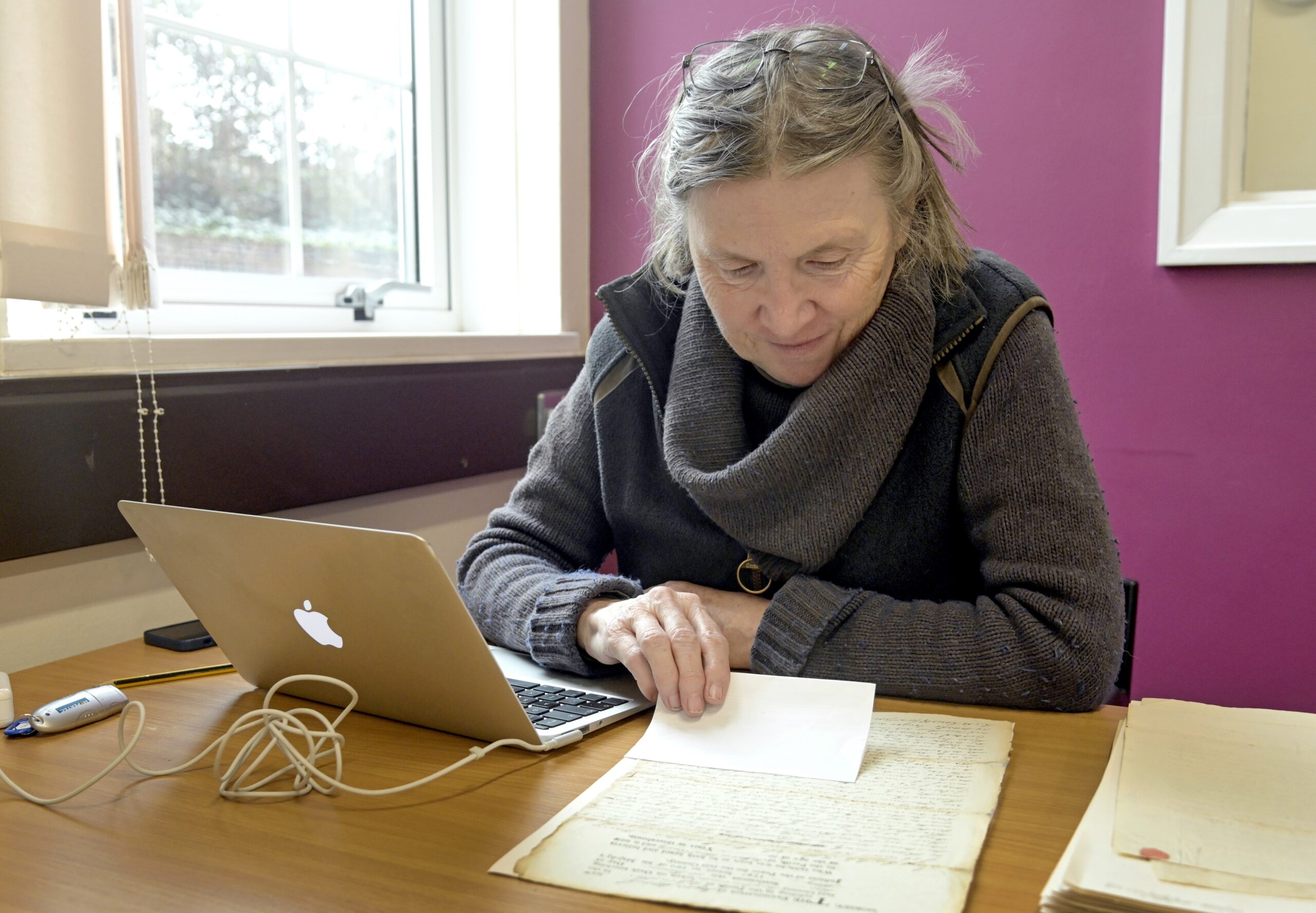
Apart from the sad stories contained within these records, they produced little gems such as when the first inoculations took place in the village (not long after Benjamin Jesty had arrived in Purbeck), doctor’s bills including blood letting, those who stood as substitutes for men in the militia and even one man, a sailor on a ‘man o’ war’ who was captured by the French and ended up in a French prison for 10 years. There are whole life histories in the settlement orders which you will not find elsewhere and although all the people mentioned are from the lower classes, you get a vivid picture of what they’re up to as they move around from job to job or indeed, being incarcerated! It is completely fascinating. It adds to the history of Corfe.
Volunteering is a peaceful time. A chance to get away from the house and step into the past. There is no time pressure to complete the cataloguing – you can go at your own pace. Coffee is provided and there is always the chance that you will find a nugget of information which you never knew about.
—
Valerie Brenton has been researching a variety of topics to help Dorset History Centre’s Community Engagement Officer with various projects.
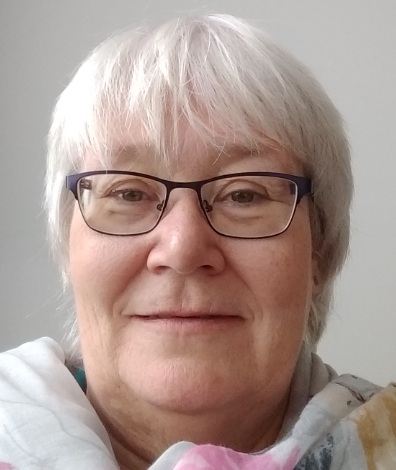
Most recently I’ve been working on researching various gypsy, Romany and traveller stories for Kushti Bok, and there are a series of short blogs about the challenges of this research that are going to be published throughout June. You can read the first one, about the challenges of GRT names now.
I absolutely love the amazing range of items that I come across that help illuminate the past.
—
Jane Ashenden has been working on the Herrison Hospital collection, as well as helping identify and list some engravings and etchings we hold.
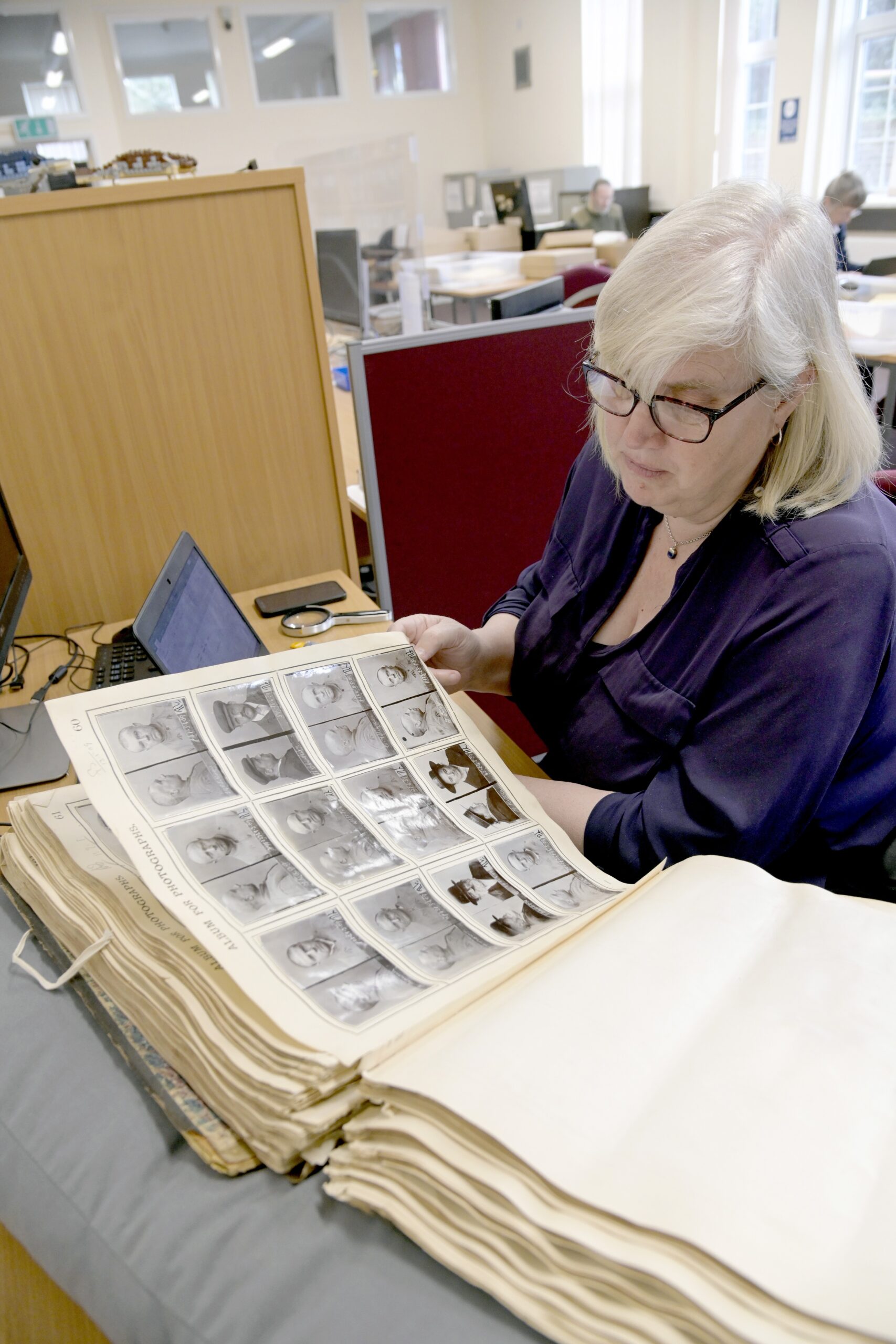
I began as part of a team of four volunteers cataloguing and repackaging admission documents for Herrison Hospital, formerly known as the Dorset County Asylum. After the ‘Covid break’, I returned to complete the record of over 10,000 pauper and private patients. Since then I have had a variety of tasks including listing the names of inmates of Dorchester prison from photographs and cataloguing the collection of etchings and engravings of scenes around Dorset. I am currently completing the rest of the Herrison collection and look forward to what the archivists have ‘in store’ for me to work on in the future.
I greatly enjoy supporting the work of the archivists at the Dorset History Centre enabling me to help out whilst furthering my interest in social history.
—
Dave Wraight has been one of a small group of volunteers who have been geotagging some 3,000 places since the project started in January 2022.
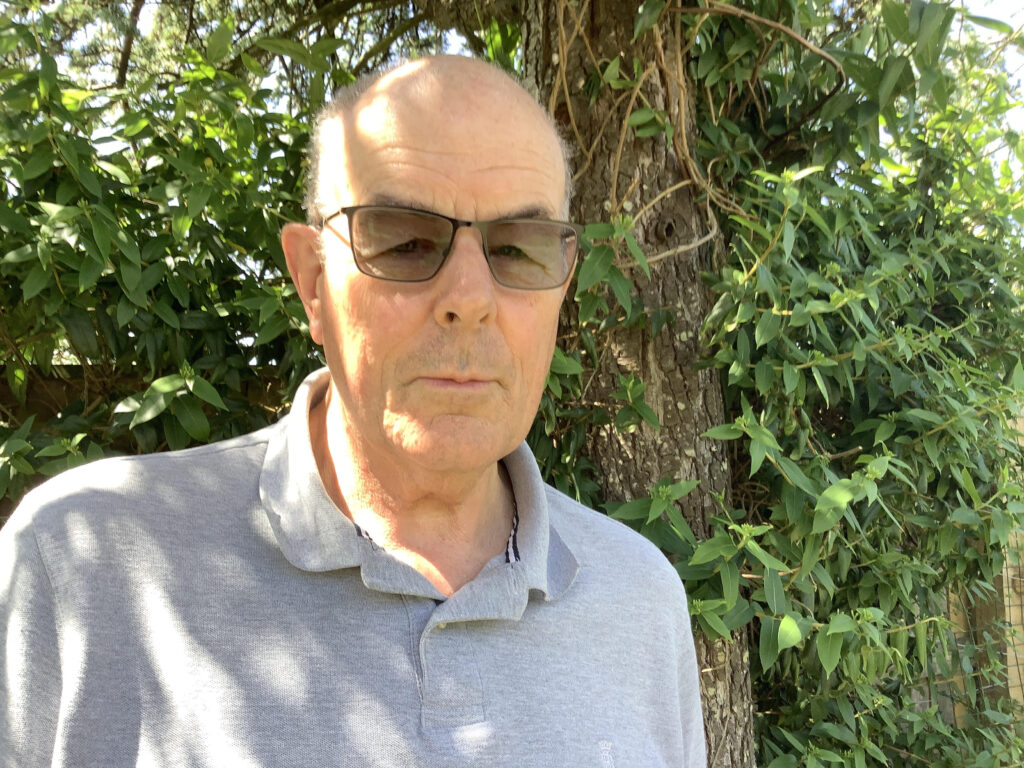
This has involved identifying the exact location of individual houses, farms, hamlets, villages, towns, parishes, counties, countries and continents all of which are mentioned in the DHC archives. Once a place is located it has been marked on a map either by an individual place marker or by carefully tagging the whole boundary. Some places have been more difficult to find with names either being misspelt, or names having changed over time. In identifying places, we have been using many different maps and archive material, some of which is held within DHC but mostly by using the Ordnance Survey and other maps held by the National Library of Scotland. Eventually the map we have been making will be available as one of the starting points for research within the archives.
I have found this to be a very interesting project and it has taken me to many places within Dorset (some of which I never knew existed) as well as to places around the world which have a ‘local’ connection whether it be associated with individual families, farms or industries. In the coming months I will be adding some of my own family history to the archive and that will require a few more different places to tag!
—
Cory King has been cataloguing the 1950s business letters from the Kingston Lacy and Corfe Castle Estates, part of the Bankes archive.
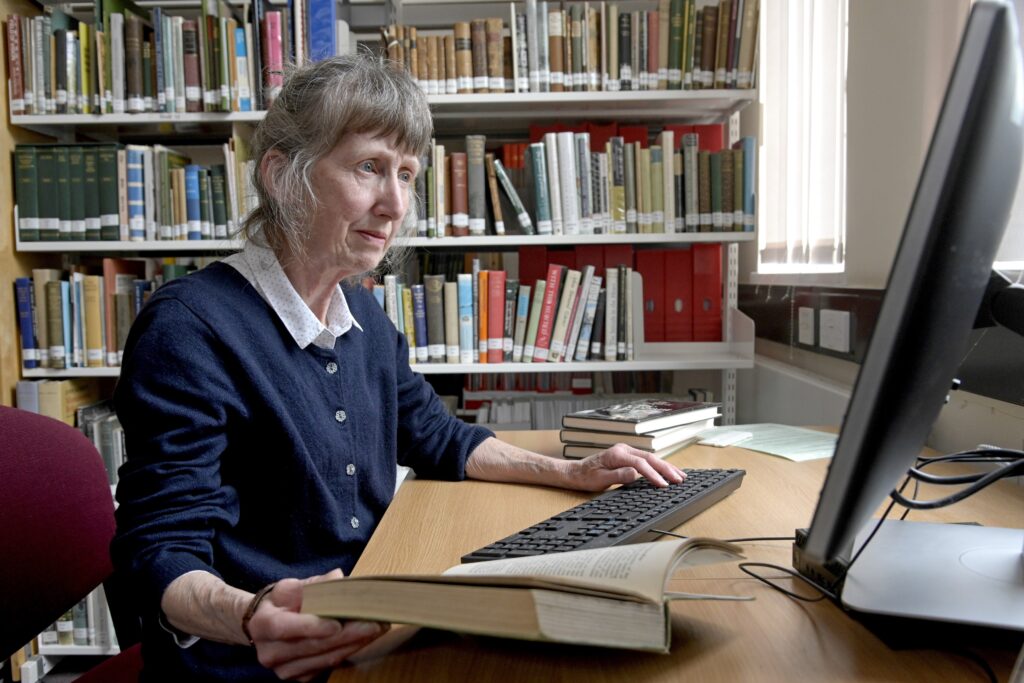
They’re a fascinating insight into what the estate manager dealt with on a daily basis and the range of letters he received. These constantly included requests for a house or cottage to rent, or a place in an almshouse. Another aspect of the work concerned the houses, farms and cottages belonging to the estates that seem to have been constantly in need of repair, often because of water coming through roofs and running down interior walls, or from damp. Many of the cottages still relied on wells for drinking water and when a Sanitary Inspector deemed the water to be unsafe, the estate had to do something about it. Added to that, there were often requests to park a caravan, or to camp, on estate lands, usually in Studland, and always refused, except for the Territorial Army when carrying out their training exercises. Beach huts and licences for them were another part of the work, as were providing licences for shooting and fishing rights. Mr Bankes also owned the ruins of Corfe Castle and another frequent request was from local Boy Scout and Girl Guide organisations who wished to use the castle grounds for rallies.
What do I enjoy about volunteering? It’s the wish to make archives accessible through the cataloguing individual items, so that people can find out what is in particular collections that may be of relevance to their researches or interests.
—
This is just a sample of the work that volunteers do for Dorset History Centre. We also have volunteers who help us with Oral History collections, volunteers who undertake outreach events, and volunteers who help support students.
A total of over 800 hours were given by volunteers to help support DHC in the last year, and we are very grateful to all the volunteers for the time they have committed to Dorset History Centre. We literally couldn’t do things without you!


And these are just a few of over 30 volunteers. Everyone of them contributes something special to the service and we are immensely grateful.